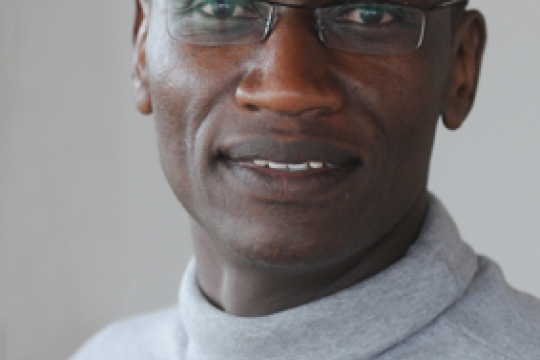EfD researchers invited to public hearing: "Policy processes provide windows of opportunity to discuss research results, highlight the importance of natural resources to the economy – and get impact," says Paul Guthiga. Guthiga is one of the EfD research fellows who were invited by Kenya´s Ministry of Finance to a public sector hearing held to discuss the draft budget proposal on Environment, Water and Sanitation for 2009-2011.
Last year, EfD research fellows Dr. Wilfred Nyangena, coordinator of EfD Kenya, and Dr. Paul Guthiga were asked to review the draft budget proposal and then give their comments and suggestions at a public hearing that included senior policy makers, government officials, and representatives from the general public and from donor agencies including Sida.
The main message from the two environmental economists was that a larger share of the total government budget needs to be allocated to rehabilitate, restore and develop the country's natural resources.
Forests, rivers, and national parks are examples of natural resources that are crucial for Kenya´s economy and development. The natural resource sectors contribute 42 per cent of Kenya’s GDP and provide a wide range of direct and indirect goods and services. The indirect services i.e. ecosystem services, are not valued or captured in the national accounts. Despite their high contribution, the sectors receive proportionately less allocation from the government. For instance, less than 4 percent of the total 2009-2011 budget is allocated to the rehabilitation and development of these sectors.
”In the current development plan, the government says it will spend money on Kenya's five water towers – the five forested mountains, which are the country’s major water catchment areas. Over 90 per cent of all water comes from rivers that flow from these mountains. But despite the critical importance of these areas, only 50 million Kenyan shillings is allocated for their protection and for reforestation. This is not enough. You can’t first say that the water towers are very important and that you want to rehabilitate them and then allocate so little money,” says Paul Guthiga.
In total, the Ministry of Forestry and Wildlife requested 9,600 million Kenyan shillings for the natural resource sectors for the period 2009-2010. They received only 4, 000 million, which is less than in the previous period. The reason for this is serious budget constraints.
“In spite of our plea, our input didn´t change much in terms of allocating money this time. But the government can use our arguments to make a case and go to donors and ask for funding,” says Nyangena.
Recommendations for environmental management
Over the years, Nyagena and Guthiga have studied various issues affecting natural resources in Kenya. The public hearing provided an opportunity to share their research knowledge. During the presentation, the two researchers recommended an increased use of economic instruments for environmental management in addition to the predominantly used command-and-control methods. They cited the provisions of the Environmental Management and Co-ordination Act (EMCA), which provides for imposition of taxes on environmentally harmful behavior in order to raise revenues to invest in the natural resource sector. They also recommended speeding up the ongoing process of introducing natural resource accounting at the national level.
Both Nyangena and Guthiga are very pleased that researchers from EfD Kenya/KIPPRA were included in the hearing. The fact that they were included points to their reputation of being able to provide policy makers with research-based knowledge.
 “We were able to draw on the competence of others within the EfD network. Once we got the request, we contacted Sida's External Expert Advice for Environmental Economics at the University of Gothenburg to get their views on what should be stressed", says Nyangena (left).
“We were able to draw on the competence of others within the EfD network. Once we got the request, we contacted Sida's External Expert Advice for Environmental Economics at the University of Gothenburg to get their views on what should be stressed", says Nyangena (left).
Participation in public hearings also means valuable contacts and opportunities for networking.
“Public hearings are good forums for sharing knowledge. Top officials are listening, and we can show them real information and data that they may eventually use to bring change. It is important to us to be part of the actual policy processes that have the potential of bringing real change,” says Guthiga.
The letters of appreciation Nyangena and Guthiga have received from the Permanent Secretary (PS) Ministry of Finance indicate that the discussion was indeed well received.
By Karin Backteman
